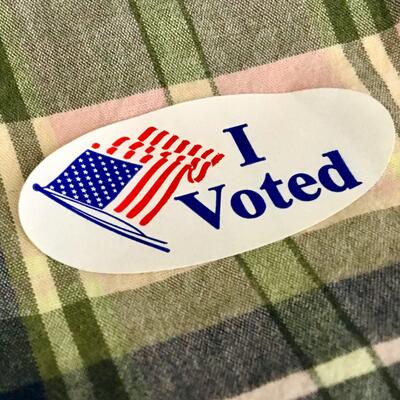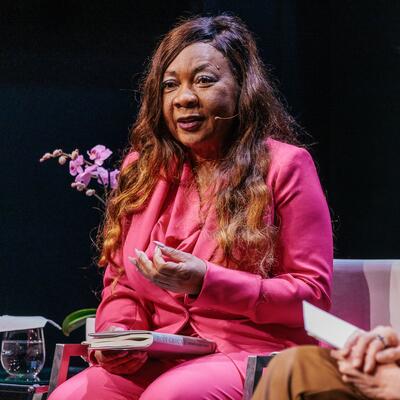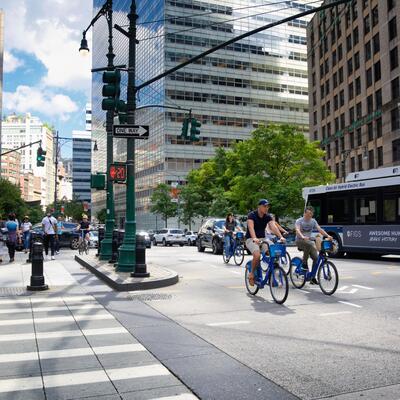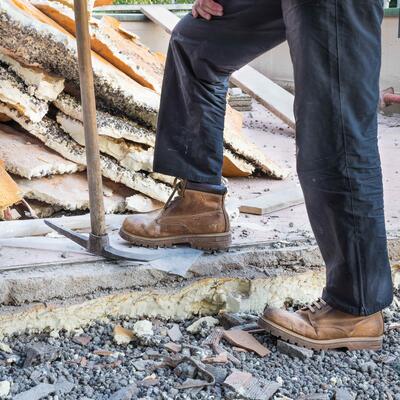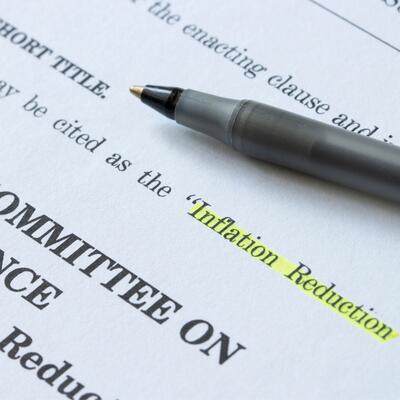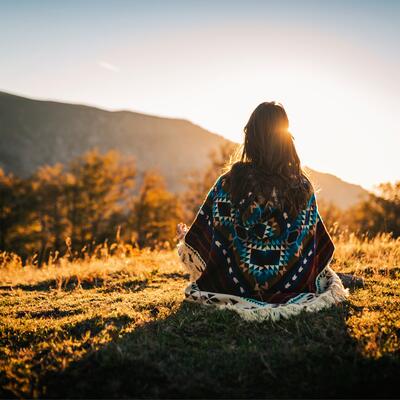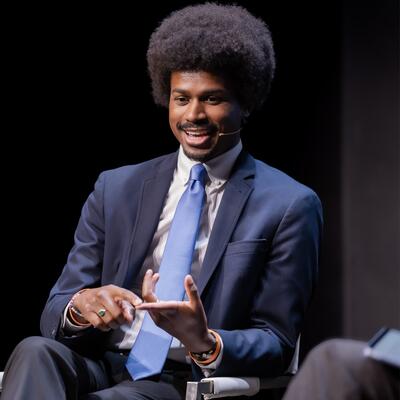
No Justice Without Climate Justice
Guests
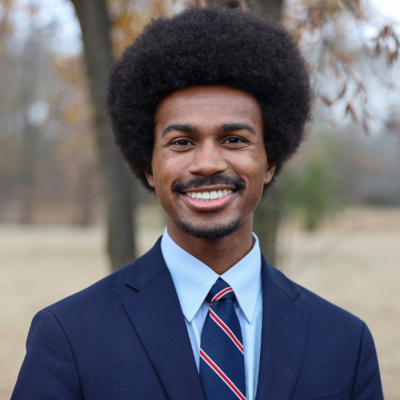
Justin J. Pearson
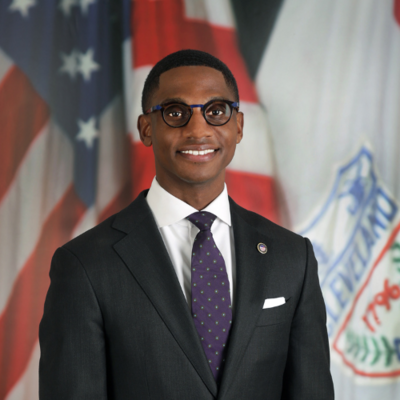
Justin Bibb
Summary
A fundamental truth of the climate crisis is that its impacts aren’t felt equally.
“What do we know about fossil fuels? The people who contribute the least to greenhouse gas emissions suffer the most,” says Justin J. Pearson, who, at 29, is one of the youngest people serving in the Tennessee legislature. He represents District 86, which includes parts of Memphis.
The day he was sworn into the Tennessee Legislature was the same day as a mass shooting at a Nashville primary school — the deadliest in the state’s history. Three days later, Pearson and another representative led a protest for gun safety reform on the house floor — and they were expelled by Republicans. (Both were quickly reinstated.)
This series of events vaulted Pearson into the national spotlight. But before he was nationally known for speaking out about gun violence, Pearson was a passionate advocate for environmental justice. Even before he was a state representative, he co-founded the group Memphis Community Against the Pipeline to defeat a multi-billion dollar crude oil pipeline. The Sierra Club recognized him as the 2023 National Changemaker of the Year.
“Everybody deserves clean air, clean water, clean soil. And we have to dissent to a status quo that is saying different,” he says.
“We dissent to unjust policies, unjust practices, unjust people, and positions of power… And I believe that it is a movement of angelic dissenters and this movement for justice rooted in love that say there has to be a subversion to this status quo. That's not just going to save our planet, but save the people who are here.”
Justin Bibb, mayor of Cleveland, Ohio, understands these systems of disinvestment.
“Because there’s a direct correlation between air quality and asthma, there’s a direct correlation to whether or not [people] live on a heat island, which also has a direct correlation to public safety and violent crime.”
Bibb is one of America’s youngest mayors – just 37 years old. And he’s determined to make his city a climate leader. He also serves as chair of Climate Mayors, a bipartisan network of nearly 350 mayors working on solutions in their communities. Bibb says the climate crisis is the ultimate public safety issue.
“Every mayor would tell you that public safety is their number one priority. But it's not just about getting more guns off the streets. It's also about making sure we are addressing the root causes of violent crime that are related to the built environment in which our residents live, work and play.”
Cleveland was selected for the Bloomberg Sustainable Cities Initiative, along with four other cities in Ohio. Bibb says he’s hoping the investment will help the city advance climate solutions and close the racial wealth gap.
“I'm just really excited to really focus this work on making sure people of color have access to the green jobs of the future, making sure that the benefits of the green energy revolution are broad-based, but also making sure we can tackle our energy burden as a city in a more inclusive way.”
What Can I Do?
Resources From This Episode (2)
Full Transcript
Note: Transcripts are generated using a combination of automated software and human transcribers and may contain errors. Please check the actual audio before quoting it.
Greg Dalton: I’m Greg Dalton.
Ariana Brocious: And I’m Ariana Brocious.
Greg Dalton: And this is Climate One.
[music change]
Ariana Brocious: We’re recording this just days after Hurricane Helene ripped through the southeast corner of the country – more than 100 dead across six states, vast regions without power and entire communities just leveled by the storm… the task of rebuilding is monumental. We hope that you and yours are safe.
Greg Dalton: This awful, terrible storm just underscores that climate disruption is here. This devastation was amplified by the fossil fuels we’ve burned that are heating the atmosphere and oceans.
Ariana Brocious: And it underscores the mammoth task of trying to come up with solutions. Today we’re bringing you two conversations with really engaging, inspiring leaders. They’re both elected officials, they both care deeply about climate, and they both happen to be named Justin.
Greg Dalton: Right. Justin Bibb is mayor of Cleveland, Ohio, and Justin J. Pearson is a state representative in Tennessee. I still think we should have called this episode “The Climate Justins.”
Ariana Brocious: Both Justins are people to watch now and in the coming years. As you’ll hear in the conversations just ahead, both are really focused on climate change and environmental justice. But they’re also focused on the many ways other social issues are compounded by climate factors. Nothing is an island, least of all climate.
Greg Dalton: Right. We know many ways that we’ve underinvested in certain areas – they have fewer trees and parks, fewer grocery stores, less business development. And too often, companies looking to build fossil fuel infrastructure will target these same communities, because they know they have fewer resources to fight back.
Ariana Brocious: Justin Bibb, mayor of Cleveland, understands these systems of disinvestment. And he’s really focused on reimagining his city as a climate leader. We’ll hear from him a bit later in the show.
Greg Dalton: First, we’ll talk with Justin J. Pearson. He represents Tennessee’s 86th district, which includes parts of Memphis. He vaulted into the national spotlight last year as a vocal advocate for a ban on assault weapons. The day he was sworn into the Tennessee Legislature was the same day as a mass shooting at a Nashville primary school – the deadliest in the state’s history. Three days later, Pearson and another representative led a protest for gun safety reform on the house floor – and they were expelled by Republicans. (Both were quickly reinstated.)
Ariana Brocious: Before he was nationally known for speaking out about gun violence, Pearson was a passionate advocate for environmental justice. Even before he was a state representative, he co-founded the group Memphis Community Against the Pipeline. I was really moved by the clarity with which he frames his commitment to equality for all when it comes to a healthy environment.
Greg Dalton: Yeah, he’s really passionate and inspiring. Here’s our conversation, recorded live at the Commonwealth Club in San Francisco.
Justin J. Pearson: I got engaged in the environmental and climate justice movement not as a person who's been doing this 30 or 40 years. It was one article written by MLK50, Justice Through Journalism, about this crude oil pipeline that they were planning to run through a neighborhood where my family has been for 100 years, in southwest Memphis in Boxtown and Westwood. And they said we chose this neighborhood because it's basically the path of least resistance.
Greg Dalton: They said it out loud.
Justin J. Pearson: They said it out loud. Which is rare, right, for them to say it out loud. We know what they're thinking. That land agent got fired, believe it or not, who said that. But he told the truth about what they believed. They looked at political disinvestment, economic disinvestment, they looked at the lack of opportunity that the community had been given for so long. And they said here's a place that we can exploit. They didn't understand the resilience that was there, the culture, the history that was there and a classmate many years before me had posted this onto Mitchell high school's facebook page. And I read that article. I saw the comments that were made. I saw that many of the political leaders weren't engaging at all with the community that was being impacted. On October 17, 2020, at the height of the pandemic, 50 people all masked up, seven of them, my family members, went to this meeting, heard from the pipeline company, how good this project was going to be, how necessary it was if you were going to have toothbrushes, and products that rely on crude oil. And then we heard from Protect our Aquifer. An organizing, uh, organization who said, look, this will actually run through our well field and could destroy our drinking water. And then we had another group come, Caesar and they said, well, we're the most seismically active place, on this side of the Mississippi river. And so if an earthquake were to happen, it would rupture and it would destroy our drinking water. And just a quick note about Memphis, Memphis has some of the best drinking water in the world because our drinking water is 2000 years old. It's been filtered through to this aquifer. So they're going to threaten that. And so on October 17 2020 Memphis Community Against the Pipeline is born. And from that day until July 2nd myself, my family, our community is organizing neighborhood associations is calling every single politician is starting to do marches down city hall. My first march, believe it or not, had four people, one of them was named Pearson. So it really had three, my oldest brother. and we get the attention of former vice president and Nobel Peace Prize winner Al Gore. We get thousands of people, uh, white, black, in North Memphis, South Memphis, East Memphis organized and galvanized, and we ultimately defeat this project with people power, um, and, um, with a community that showed we're the path of resilience, not the least resistance.
Greg Dalton: And that leads to you running for office and being elected to the Tennessee state legislature. In March of 2023, a former student walked into the Covenant school in Nashville with two assault style rifles, killed three students, three staff members. Shortly later you and a fellow legislator Justin Jones were expelled from office by republicans for personally protesting in the well of the legislature and joining demonstrators in the public areas of the capitol building. The day after your expulsion, Vice President Harris takes a detour, makes a surprise visit to Tennessee to affirm President Biden's support for a ban on assault weapons. A couple weeks later, you're in the Oval Office with the President and Vice President. That's like, you know, a mind boggling ascent into the national scene. Suddenly, you know, your face is kind of, you know, national news. What is that like for you? How'd that change your life?
Justin J. Pearson: Yeah, I mean, Let me start with this. On March, 27th, I get sworn into office. It's the same day of the Covenant School shooting. And two days later, we don't have session that day. We gavel in and gavel out. 7,000 people show up that Thursday. Mostly young people under the age of 18, some teachers, some parents, and they're screaming, do something, ban assault weapons, pass a red flag law. They're just making all these requests. 7,000 is the largest gathering and protest that we've seen in Tennessee history, in modern history. And instead of legislators listening to the students or listening to the parents or engaging in any way, they laughed at them. Or they pointed at them and snickered, or they took pictures of them, or they just looked down at them, and walked by. And there's something that happens when, when, when the people who are angelic dissenters, who are of good moral courage show up inside the institution, it forces the people who are within it already to stand up with moral courage. And so we went to the well of the house floor, no in and of ourselves, but with the spirit of ancestors and those who are devastated by the impacts of the epidemic of gun violence, who want us to do something and want us to have transformation. And it all happened during holy week. So that Friday that Vice President Harris came to Nashville, Tennessee was Good Friday. And when we think about democracy, when we think about the sacrifices, when you think about these things in the spiritual context, it is a lot about the persecution the government has against people who stand up and speak up and fight back, but it's also so important that we always remember the resurrection and that for a lot of people who are no longer with us, including the six lives that were lost at the Covenant School, my classmate Larry Thorne, my cousin CJ, my mentor Dr. Yvonne Nelson, there's so many people who are not able to speak up and protest and stand up. We have a responsibility to do so and so even in the Oval Office It was asking President Biden, Vice President Harris, “What more can you do?” And so, months later, we got the first ever Office of Gun Violence Prevention open at the White House. And we were able to be there and sit for a while as that happened. We are still advocating for laws to be passed at the state level. Um, but in between time, the Memphis City Council just won a lawsuit for us to put referendums on our ballot, to ban assault weapons, to have extreme risk protection orders, and also to make it so that people have to have a permit to carry a firearm in our city. Like we're fighting back in all the ways that we can, and that's what people power does. That's what I think. Um, the attention that the Republicans thought they were putting on myself and Representative Jones to shame us, really put the spotlight on them for the harm they were doing to democracy and the need that we have to do everything we can to end this epidemic.
Greg Dalton: So you had worked in, you know, environmental justice, you were kind of thrust into the gun issue, partly because of what happened on the day you were inaugurated, you're newly in power. Some people would often, often people would see gun safety and violence and energy and climate change as like very different issues. Are there common threads? How do you, are there connected?
Justin J. Pearson: Absolutely, absolutely they're common threads. I mean, one way is, you look at it is this. What are the communities that are most impacted by pollution? The same communities that are impacted by pollution are the ones that are being devastated economically with opportunity, being educationally deprived, and are also the most polluted. There's intersection of injustices.
Greg Dalton: So pollution and guns are concentrated in the same places.
Justin J. Pearson: In the same places and it's no coincidence that places that have more lead pipes and less infrastructure, positive, good infrastructure, are also places where you have incidences of more of the effects of crime or violence. The intersection is really about, Where is our society not caring for people? You And where is, as Dr. Mustafa Santiago Ali is saying, there being places that are sacrifice zones. And those places, overwhelmingly, overlap. And so, when I think about our environmental and climate justice struggle, the same community that I was knocking doors for to defeat this pipeline, and that we were organizing and rallying for at Alonzo Weaver Park, are the exact same communities that I knocked doors for to run for office and are the same people who marched to reinstate me to continue to serve as their state representative and elect me. It's like we can't separate the harms that are happening to our communities, the extraction that's happening from corporations and the attitudes and the actions of people in power that perpetuate not just pollution, but perpetuate poverty, perpetuate inequality and injustices that have long-term ramifications.
Greg Dalton: I've heard you talk about people who see this status quo and think like, well, that's just how it is. Or that's like the way it always will be and you mentioned angelic dissenters who people who are comfortable with the status quo and ought to say like, Oh, it doesn't have to be like this. So let's say a little more about angelic dissenters.
Justin J. Pearson: Yeah, the realities that we are experiencing, that our children, our nieces and our nephews are experiencing, are not isolated, but rather they are part of a lot of systems interplaying and interlocking in ways that oftentimes is creating harm. I think the reality that I learned post George Floyd's lynching and Breonna Taylor's lynching and Ahmaud Arbery's lynching is that we have social structures and systems set up that are leading to these different outcomes for people in all of our communities and the reality that there's not going to be one singular fix. There's not going to be one singular way there's going to have to be a way that we think about injustice and think about changing it. And the way that we have to do that is by being angelic dissenters and that's in two ways. One is that what we are talking about right here is pure. Everybody deserves clean air clean water clean soil. I want that for everybody Right?
Like what we are talking about is a pure reality. Everybody deserves access to the opportunity to be who God has called for them to be, to be beloved. Right? This is pure. And we have to dissent to a status quo that is saying different. A status quo of economic exploitation, a status quo of educational deprivation, a status quo that says you all deserve to have plants and deserve to have pollution and deserve to have politicians who don't care about you. And then these folks over here, they deserve all the good things. We have to dissent to that. We dissent to unjust policies, unjust practices, unjust people, and positions of power. We have to dissent. And I believe that it is a movement of angelic dissenters and this movement for justice rooted in love that say there has to be a subversion to this status quo. That's not just going to save our planet, but save the people who are here. Save lives of people like my grandmothers, God rest their souls, who died from cancer because of 17 toxic release inventory facilities being around our community. We have to dissent to this. And we have to do it in a way that is pure, that is love centered, and that is people-centric.
Greg Dalton: I learned a lot from Ibram X. Kendi and talk about some people do racist and antiracist things in the same day, same paragraph. People are not the sum of their worse acts. So you are now in a legislature, you know, worth Republicans who may, you know, back bills that you think are racist, but can you find, but they're not, maybe not always that way and everything, you know, so you have found common ground with some Republicans on some things on disclosure of toxics, et cetera. So how do you operate in a legislature looking at the humans while recognizing this big system you just described?
Justin J. Pearson: Lots of prayer. Right? Like no person is all one thing, or all another. That's, that's just true. And if we dehumanize people into things, right, and not recognize the individuality and their humanity, right, that's actually how we create and cause more harm. And I see this a lot where, folks’ humanity gets reduced to the way that they came here. Folks’ humanity gets reduced to just the person that they love and then people dehumanize them because of those things. Right? Like, instead of–
Greg Dalton: On both, to be on both sides, there's a lot of righteous judgment on the left of like, the, the purity test on the left, if you own a gun, like, oh, you know, like, I don't trust you.
Justin J. Pearson: Absolutely. But, and this is what I mean when I talk about there being, the harm is that you refuse to see the complexity of people's identity, which means that you lose the ability to see the places where you can find common ground. And that's the thing. There's a guy right now in the legislature, if the legislature was open today in Tennessee, he would be advocating against the illegal invasion of immigrants into this country. That's one of his big lynch points, right? And I would get up on the house floor and I would say, that's racist, and xenophobic and wrong, right? I think that's immoral. This same person and I have had conversations where he says, you know, I care about clean air, clean water, and clean soil. And I look at him and I say, hey, that we can agree on, that we can work on. And so when I put legislation forward in the general assembly in a subcommittee, actually agricultural subcommittee focused on getting more information about toxic release inventory facilities on our website, Tennessee Department of Environmental Conservation's website. He was one of the people who supported my legislation, right? This xenophobic person who I will call a xenophobe and fight against his bad bills is the same person who I also recognize. He and I have a similar shared interest, a common concern about protecting clean air, clean water, and clean soil.
Greg Dalton: But there's a you know, so that's what you're labeling the statement not the person, right? I mean the behavior not like he's, he's, yes. So that he's, and he still listens to you after you call him a xenophobe?
Justin J. Pearson: He, he does, he does. Because people are complicated and complex. Right? But what, what would be a disservice to my community? Right? What be disservice to the calls of the movement for environmental and climate justice would be to say, well, because you do that bad thing. I won't talk to you. If I did that for all the people who expelled me, I'd be like a monk, you know, in, in the statehouse, because I wouldn't talk to anybody.
Greg Dalton: So you're talking about, you've been this outside agitator. Now, you're an inside player. And, maybe you've seen this in your own life. Some people, they get power. They get into a system. Lobbyists start coming along. They start, I don't know, going to golf tournaments getting some fine meals and things, you know like how do you think about protecting your principles in a system that's known to kind of softly change people who get power and maybe forget where they came from.
Justin J. Pearson: Greg that’s a great question because I’ll be honest with you, cause we’re friends. I see this happen. I serve with people who I have witnessed go into the legislature one way and be transformed by a big office, a new title –
Greg Dalton: Power people, so to say.
Justin J. Pearson: Exactly, people calling you this and calling you that and you getting invited to these events. And for me, I was really blessed. I got good parents, good brothers, good family, good grandmamas, and one of the most valuable lessons I’ve ever learned and am still learning and practicing with is to never forget where you come from. That means no matter how many times you go to the Oval Office or the White House, no matter how many, uh, uh, wonderful Climate One, uh, events that you attend, uh, no matter how many flights you take or, or places that you go, you never forget where you come from. The people who built me. Memphis made right, the the community that raised me the church members who bought me shoes and gave me clothes when we couldn't afford them, never forget the teacher who opened the supply closet and gave me notebooks and pencils when we didn't have school supplies. See I can never forget all of the the moments, of my life that got me to the place that I am and that instills and reinforces a humility when I enter into different places that there's no amount of donation there's no amount of of gift giving that I could receive that would make me lose my principles and my morals because I am righteously indignant about the things that I believe. It doesn't mean that I am so hard that I'm not giving able to be convinced of anything else, but I do believe what I believe so much that is going to take you a whole lot of work to stop me from believing that climate change is real, that we need to end the gun violence epidemic, that people deserve a higher wage, that women deserve the right to choose, that LGBTQIA people are beloved, right? You're not going to move me from those things, but that's because the anchor that has been built in me really built in this community where I come from in district 86 can't go away.
Greg Dalton: Right, I feel that anchor in your family, and also it feels like, you know, rooted in Appalachia, a region that few Americans honestly visit or understand.
Justin J. Pearson: Or know how to know how to say right, right.
Greg Dalton: Did I say it right?
Justin J. Pearson: You did say it right. So you think about Appalachia one of the biggest experiences that happened in this past couple of years was a fight called the Mountain Valley pipeline fight and all across Appalachia in Tennessee, West, Virginia Virginia, North Carolina Communities were rallying to stop this pipeline project that ultimately got approved, not because it got all of its necessary permits, it got approved, because Senator Joe Manchin struck a deal with the White House to get it approved. And so it was an act of Congress, literally, to seek to defeat ten years worth of organizing to prevent this project from happening. And what that, that fight really showed me in, in, in a very real way, similar to Keystone XL, and even our own fight, is that if we are going to organize well and organize right, it is going to be this multiracial, intergenerational movement of people. And it is poor white folks, it's native communities, it's wealthy communities that are going to be experiencing the ripple effects, that have to organize themselves in a way that says, I realize that if this happens, It's going to have probably worse effects on you, but it's definitely going to negatively affect me. And if we work together, we can disrupt what otherwise would be seen as normal. We can disrupt the status quo. We can disrupt exploitative capitalism. We can disrupt these corporations and these corporate entities that are seeking to pollute us and to take land and to hurt us. If we are going to improve our environment and our climate, it will take more of us collaborating across our differences, recognizing that our similar interest of living and of surviving and of thriving requires the best of our efforts. And to do that with people who may not look like us, live in the same neighborhoods or communities as us, but by doing so, right, doing something outside of the status quo, we reshape what our present is.
Greg Dalton: We’ll have more of my conversation with Tennessee State Representative Justin J. Pearson in a moment. After the break: what happened when Elon Musk… rolled into his district…
That’s up next, when Climate One continues.
Ariana Brocious: You can help others find our show by leaving us a review or rating. Or better yet, recommend a specific episode you like to one of your friends. Thanks for your support!
Greg Dalton: This is Climate One. I’m Greg Dalton. Let’s get back to my conversation with Tennessee State Representative Justin J. Pearson.
The people of Memphis recently learned that Elon Musk’s AI company is building a big data center in their city. But the news largely came as a surprise! Even to city council members. AI, of course, uses massive amounts of energy. I asked Pearson what this project represents and what’s at stake in Memphis.
Justin J. Pearson: I do not like Elon Musk. I don't like him. I don't think he does anything that is good or outside of his own personal self interest.
Greg Dalton: Well, Tesla disrupted the auto industry and did a lot of good things that wouldn't have happened otherwise. Right. So he's a complicated human.
Justin J. Pearson: He is a complicated human, and I still don't like him. And you can go tell him, uh, that, that I don't. He can take his Tesla… Anywho. And it is kind of amazing, right? They got all this fancy technology and tools, and it's just like, and you can't use that same technology to figure out how to do something in a way that doesn't pollute and kill communities. All this knowledge and information you got all these resources and scientists you got and you still can't figure out how to have a facility that doesn't use so much energy? Look this this XAI plant currently is using about as much energy as could power 80,000 homes, 1.2 million gallons of water a day and just recently we learned they're seeking to double this. And there's a recent article in Time magazine, sort of about the plans and the project, but the way that it came about is so typical for how projects that exploit communities show up. One day you watch the news and you learn that it's coming. There hasn't been a community meeting. I read it's in my district and I haven't learned anything about it. City counselors, I called them. They hadn't learned anything about it. It was a deal struck between the chamber of commerce, the previous mayor and the current mayor, and then we're all supposed to just celebrate it.
But no one asked the real questions about the project. And so. when it shows up with 18 fossil gas turbines that are operating every single day, polluting the air quality in a county that already has an F in air quality, in a neighborhood that already has a cancer risk that's 4.1 times the national average. The community is the one that has to fight for itself. Because the chamber of commerce isn't doing it, the mayor didn't do it. They didn't see fit or that we were worthy of the attention that was needed to make sure that this project wouldn't be harmful And this is what the Vahalia connection pipeline revealed to us. It revealed environmental racism's exploitation without information, but it didn't create it. But our community is stronger now than it was four years ago. And so, yes, now we are fighting back. Now that we have more resources, more organizations, Memphis Community Against Pollution, Protect Our Aquifer, Southern Environmental Law Center, Young, Gifted, and Green, and so many more, we're able to fight and to let the world know that these projects are harmful and are, the technology may be new. But the tactic is not.
Greg Dalton: Yeah, well, Dr. Bullard wrote the book, the Father of Environmental Justice, “the wrong complexion for protection.” So this has been going on for a long time. The Tennessee Valley Authority, you mentioned, is a federal utility that serves about 10 million people in several states. It's currently building a new gas plant near Nashville, near but outside your district, more than a hundred miles of new pipelines, part of a plan to replace coal with methane gas, solar, and storage. So they will say they're going toward a cleaner direction away from coal, which we need to do gas is better than coal. What's the problem?
Justin J. Pearson: I don't like the TVA either. Jeff Lyash makes 10 million dollars a year. He's the ceo and he operates the tennessee valley authority, which is the federal utility the largest public utility as though it's a corporation. And so we need to pay attention to it as though it is a corporation. What do corporations do? They seek to exploit people. They tried to force Memphis to sign a contract that would never end To lock in the revenue of memphis and shelby county which is the most substantial part of their revenue in the entire tennessee valley. Most of the money comes from memphis, a community where a third of the people live in poverty. They tried to lock us into a never ending contract. We fought that. We prevented the signing of that never ending contract. We kept with our five year contract. People power does work and they're seeking to expand obviously you mentioned the, the, the, the pipeline in Cheatham County, but also there's one in Kingston, that's a coal plant that's retiring, where there was also the worst coal ash spill in American history from the TVA. And in Memphis, they're seeking to build more combustion turbines. Again, more fossil gas in the environment, hurting the communities most directly. And they will say, this is a bridge fuel. Right. These things are, are, it's going to help us get to clean energy, but that's not true. There's no, there's no, no, no bridge worth building that continues to hurt the land, harm the people, pollute the air when there are other alternatives. And the truth is we have to talk to people in rural communities, right? We have to go into these places and to these spaces and say, look, to have solar panels, it takes up a lot of land. That's reality. I like, and so if it's going to take up a lot of land, we need to have community benefits agreements with the people whose land is going to be used in our mostly rural parts of our communities.
Greg Dalton: Yeah, because solar can also be extractive, taking revenue—
Justin J. Pearson: It can.
Greg Dalton: Because all, solar's always virtuous and clean. Solar can be extractive and send money somewhere else, and not into the communities where it's located.
Justin J. Pearson: And that's, that's part of the problem. Right. And we had a solar project in the northern part of our district, and this is what I was explaining to them. I say, if your tactics are the same as the crude oil pipelines, like you're not doing something right.
Greg Dalton: And if we could get a nerdy here for just a second because you're like a climate nerd a little bit like I am. You know the environmental impact report of that Tennessee Valley Authority mentioned that the social costs of that project Which means the cost borne by other people, the pollution that's created, you know causes seas to rise far away, fires far away, this is by their own estimates up to 7 billion dollars. So they’re acknowledging that there's like, we don't really want to count that, but we've got to kind of say it exists that this, this, even this, this store, this project which includes solar storage, methane gas, 7 billion in, in impacts put off on other people in other places.
Justin J. Pearson: Exactly. And I mean, and I think that's low, right? This is like self reporting, a corporation being asked to self report. Just think about that. They know that the cost of what they're doing is going to be borne by other people. And their healthcare bills, going to be borne by other people who lose their homes, other cities, other states, other countries, that are going to suffer. Because of more fossil fuels being used and pumped into our atmosphere. And so you think about the multiplier effect of that across the world, but in the neighborhoods where these are going to be, the communities that breathe this air, the communities, the families, the grandmothers, the aunties, the cousins, the children, like how much is their life worth? How much does the cost of making someone a climate or environmental justice refugee? In our own nation, but then in nations across the world that is what what they're trying to calculate And I think if it were me and I was to see those numbers, I would say what do I need to do? to ensure that fewer people are bearing the burden of the actions that I'm taking because what do we know about fossil fuels? The people who contribute the least amount to greenhouse gas emissions suffer the most.
Greg Dalton: First, do they suffer, first and worst. The Brookings Institution, a Washington think tank, found last year that black voters are more concerned about climate change than the national average and more likely to take action to support climate policy. It found that for black voters, climate change is a higher political concern than abortion and democracy. So what does that mean for this political moment?
Justin J. Pearson: It means that, when we had the chance to talk with Vice President Harris earlier,, it means that we have to pay attention to this issue. When people think about climate change, and I was myself in this bucket, I would think about, you know, young white people hugging trees. But, but the better image for climate change and environmental injustice, right? It's a young black kid on a CPAP machine. Because they can't breathe. A better image is taking your grandmothers, uh, to the graveyard because they've died of cancer in their early sixties. That's the consequence of environmental and climate change. And I think the image of climate change is changing because these fights are becoming more proximate. It seemed for so long that this was fights way out there, but then cop city comes into Atlanta and then Vahalia pipeline comes into Southwest Memphis. We got more proximate to it and started to realize that something was happening to us that as I learned those Valero pipes, those weren't cloud makers. Right as I thought when I was a child and I was a child and we drive by them. That was pollution coming out of there, right? Those are flare offs and we were breathing that in. I think what's happening in black communities and communities across our country that are experiencing these and are more proximate to them is the resistance. And honestly, if people have paid more attention to where these things were being placed 30 40 50 years ago, we wouldn't have a climate crisis, but it was because the black communities, the brown communities, the indigenous communities, the poor communities weren't being cared for then, that we're suffering with the consequences now.
Greg Dalton: Right. And you're a Democrat who says that Democrats are ignoring much of the country. Explain why that is and what impact it has.
Justin J. Pearson: I mean, you know, 97 percent of the country roughly is rural. It's like the majority of the country.
Greg Dalton: By land, by land, not by people.
Justin J. Pearson: And so for Democrats, and I am a proud Democrat, we have, we have to be more proximate to people who are suffering. And I love California. I lived in Massachusetts. But our party and our politics cannot be segregated to just two parts of our country.
Greg Dalton: The coastal elites who've been kind of running, the Chardonnay Democrats.
Justin J. Pearson: Exactly. The bi coastal elites as it were, are not all of the party. We have to go to Nebraska and Iowa. in Tennessee, in Mississippi, in Alabama, we have to go to these places, and particularly in the South, not just because the South has something to say, but if I could tell you this, the litmus test for America's progress, the litmus test for American democracy in our future, is actually the South. Why? Because you go to the places where the people are most oppressed to see how good you're doing as a nation with breaking down oppression. If you want to go to see how good San Francisco is, don't go to the fancy rich area. Go to the place that's been most deprived historically of opportunity, and I'll tell you how good San Francisco is doing. And do that in all the places across this country, and you will see that we have a deep desire and need for a movement for justice to rise up, a movement for justice rooted in love, to rise up in the places that have been overlooked, the places that have not gotten enough attention, the places that have been deprived for too long, and to put power and our voice and our resources and our money in those places to create the transformative change that we need.
And so for Democrats, that is talking to white, that's talking to black, that's talking to Asian, that's talking to Latino, that's talking to rural, that's talking to urban, that's talking to the farmers, that's talking to the cattle ranchers, that's talking to everybody, Because what I know to be true about the policies that I advocate for and that I believe in is that these are policies that are beneficial to everybody.
And if the racism, and white supremacy, and patriarchy, and homophobia, and transphobia, and xenophobia become the divisionist tools that, that, that, that, that other colleagues continue to use, we will never build a more perfect union. We'll never build a more perfect society. San Francisco, a more perfect California, a more perfect country, we have to be sure that we talk to everybody because the coalition that we need to save our climate, to fix this planet, to fix these problems has to be a diverse one, has to be an intergenerational one. And I don't know if y'all know this, but there's no line in the sky where it says, I have now left the poor black community or the poor brown community or the poor white community. There's no line in the sky that says those things. We might experience it worse, but we all are sharing the same planet.
Greg Dalton: Justin J. Pearson, thank you so much for coming on Climate One.
Justin J. Pearson: Thank you.
Greg Dalton: Coming up, the mayor of Cleveland says he needs his colleagues to understand: the climate crisis is the ultimate public safety issue.
Justin Bibb: Every mayor would tell you that public safety is their number one priority. But it's not just about getting more guns off the streets. It's also about making sure we are addressing the root causes of violent crime that are related to the built environment in which our residents live, work and play.
Ariana Brocious: This is Climate One. I’m Ariana Brocious. Justin Bibb is one of America’s youngest mayors – he’s just 37 years old. And he’s determined to make his city of Cleveland, Ohio, a climate leader. He also serves as chair of Climate Mayors, a bipartisan network of nearly 350 mayors working on solutions in their communities. Bibb says his own commitment to environmental and climate justice was partly shaped by where he grew up.
Justin Bibb: I grew up in the southeast side of Cleveland in the Mount Pleasant Union Miles neighborhood. And I really grew up at a challenging time in that part of Cleveland. It was at the height of the crack epidemic in our city. And also it was a time where violent crime was a challenge and poverty was also a challenge in our neighborhood.
But for me, as a working class kid, it still felt like a very, safe middle class neighborhood because of all the love that I received from my mom and my grandmother, who I lived with and, and for me, my passport to explore my neighborhood, and to explore the entire city was my bike. And by riding my bike to the park to, to play pick up basketball or go roller skating or to get ice cream or fries with my friends or go to the library. I got a real front row seat at what worked really well in my neighborhood and what wasn't working so well. I was in a neighborhood that had a lot of vacant lots and my grandma and her best friend, Miss DeBose, they started the first urban garden in our neighborhood, which was one of my first summer jobs. They also started the first street watch club, which played a role in working to reduce violent crime on my block. but you know, it's still a part of the city that's still very challenged with many issues around energy burden, where folks have too much month and not enough money to pay their utility bills. It's still an area where we have lots of folks dealing with high rates of asthma, diabetes, and low life expectancy. And it was a red line community as well too.
Ariana Brocious: Thanks for sharing that. So last time we talked, we spoke about your efforts to make Cleveland a more walkable city. This model described as a 15 minute city, which is the idea that you can reach anything that you need, grocery stores, healthcare, libraries, arts, et cetera, schools within 15 minutes, walking or biking or transit. You just described how accessible certain things were to you as a kid and how that shaped your view. So how's that initiative been going during your time as mayor?
Justin Bibb: We've made a lot of great progress. Obviously it's not mission accomplished. We have a lot more work to do, but I would just tee up a few things that we're really excited about. Number one, not only did we pass our complete and green streets ordinance, but, now that ordinance has real meat and real life. We're creating more protected bike lanes across our city. We’re getting more input from folks who ride bikes and who walk our streets in terms of how we can execute our vision zero strategy as a city. We are going to be completing later this year, our parks and rec center master plan to ensure that every part of Cleveland has a good quality park that's well lit and well programmed all across our city. And we're making, very important strides to ensure that we really eradicate the food deserts and lack of good quality jobs we have in our city. We're putting 50 million of capital right now on the street to convert a thousand acres of vacant brownfield land and make that land shovel ready to go to attract and retain good jobs and good companies back to the urban core. And then the other thing I'm really excited about is the fact that, we have now executed our first ever transit oriented development policy, where we are encouraging the elimination of parking minimums and high frequency transit corridors. We’re encouraging developers instead of having more parking spots. Let's have more bike racks and bus passes for new residents. And I think slowly but surely we're getting there as a city.
Ariana Brocious: That's great. I want to drill into a couple things you mentioned. So in my understanding, complete streets is a sort of approach that views the streets as for everybody, right? And so making them equally accessible, functional, safe for pedestrians, for bikers, for people taking the bus, for people driving a car, right? Can you explain what Vision Zero is?
Justin Bibb: Yeah. Our vision zero strategy is really focused on how we eliminate traffic deaths in Cleveland.
Ariana Brocious: Yeah, it's a real problem in a lot of big cities. What are the other connections you see between a walkable city and climate justice?
Justin Bibb: We are a legacy American city. We were built at the height of the automobile. Too many of our streets are too wide, and you know, right now we have a very focused, amazing open streets campaign. We're in the process of closing more of our streets to make them more walkable, make them more dense, make them vibrant, open public spaces. We also recognize that we need to encourage folks to ride our transit more. Cleveland has done a fantastic job recovering from the pandemic in terms of transit ridership as compared to our peer cities across the country. And so we're encouraging more ridership on our bus rapid transit lines across the city. And we're also really focused on making sure that we encourage more BRT development in Cleveland.
Ariana Brocious: Bus rapid transit.
Justin Bibb: And so I'm really excited about a new BRT line on the West 25th street in the heart of Ohio city, in the West side of Cleveland. We have led the nation with a best in class BRT line with our health line on Euclid Avenue that connects the urban core of Cleveland to our major healthcare systems and to Case Western Reserve University and Cleveland State. And so we've got great bones to build on. Another thing I'm really excited about is the work we're doing on our waterfronts. And we're in conversations with Amtrak on having more Amtrak lines on our rail line near our lakefront and building a new multimodal transit hub on our lakefront as well.
Ariana Brocious: Yeah, it sounds exciting. There's a lot. And Bus Rapid Transit, in case anyone listening isn't familiar, are buses that basically don't have to stop as often, right? They kind of get priority lanes, they are more efficient, faster modes of transportation than a standard bus. Along with all these other initiatives, you've proposed installing more EV, electric vehicle charging infrastructure as Cleveland, as well as shifting more of the city's power to renewable energy sources. What's your plan to do that in an equitable way?
Justin Bibb: Well, we are in a historic moment right now because of the great leadership of President Biden and Vice President Harris with the passage of the Inflation Reduction Act, which is putting out billions of dollars of capital investment to install more EV charging stations and give working class everyday Americans access to the ability to purchase more electric vehicles through a new tax credit programs. And so really excited about the new EV charger we've installed in the heart of Cleveland Southeast side. In the Lee Harvard neighborhood. We broke ground on that in 2022. I had one resident tell me that, “I don't know what this is, but I'm glad it's in my neighborhood.” And that's a great example of making sure residents feel the change and see the change of what these investments are and what they really can do to improve the everyday lived experience of Clevelanders. As chair of Climate Mayors.
I'm working with mayors all across the country to convert our fleets by 50 percent over the next several years, to electric vehicles to ensure we're meeting the moment and creating more demand to meet the supply as well too. And so at every level of government, we are trying to ensure that our residents and our businesses can really take advantage of the electrical vehicle movement across the country.
Ariana Brocious: It was so nice to hear you talk about a resident there for a second. And you know, it's sometimes hard to connect these policies, including things as great as the Inflation Reduction Act, which is making all these investments across the country to the lives of everyday people. And so, can you give us a few more examples of how the IRA or other initiatives out of your office are affecting the lives of average people in your city?
Justin Bibb: Well, you know, sometimes we as policy wonks and elected officials get caught up in the alphabet soup of this policy and that policy. But at the end of the day, this work is all about making sure our residents have cleaner air to breathe, cleaner water to drink. and safer streets to live on, to achieve their God given potential. And one, important, small, but important investment we're making that we just received from the inflation reduction act is more direct investment in Cleveland to plant more trees. We were once known as the forest city. But unfortunately we have not done a good enough job over the years, to enhance, maintain and grow our tree canopy. And that problem is really dire in the East side of Cleveland, where a majority of our black residents live, work and play. And so, we're really focused on making sure we can rebuild our tree canopy and historically disenfranchised parts of the city, because there's a direct correlation to air quality and asthma. There's a direct correlation to whether or not they live on a heat island. Which also has a direct correlation to public safety and violent crime. all of these things are interconnected. And so this is why I'm just really thrilled that we have leaders in Washington who care enough about cities like Cleveland and how these investments can really transform our neighborhoods and people's lives.
Ariana Brocious: You touched on some of the benefits of trees and another big one is mental health, right? Just being in a more verdant environment does a lot for all of us. and that's really critical too. So Cleveland was selected for Bloomberg sustainable cities initiative. One of five cities in Ohio, and that makes you all the biggest cohort, which is really neat. So what will that initiative do to help Cleveland decarbonize?
Justin Bibb: Well, I'm, I'm really excited about this investment. It's the first direct investment from the Bloomberg foundation in the city of Cleveland. We're going to have a three person innovation team over the next three years, really looking at how we can build on our existing relationships with grassroots community based organizations and really think through how do we advance climate solutions, to really close the racial wealth gap in our city. Ariana at the end of the day, if this work isn't about creating more opportunity. If it isn't about putting more money in people's pockets, if it isn't about addressing legacy wealth, then we are not doing our jobs as elected leaders, and so I'm just really excited to really focus this work on making sure people of color have access to the green jobs of the future, making sure that the benefits of the green energy revolution are broad based, but also making sure we can tackle our energy burden as a city in a more inclusive way.
Ariana Brocious: Why do you think it's important to have cities working together? Whether in the capacity of the cohort of Bloomberg cities, like you just mentioned, or you know, your chair of climate mayors, this is obviously a network of, of cities around the country.
Justin Bibb: Well, as any mayor will tell you, we love stealing each other's ideas and, and, and that's really about making sure we are sharing what's working, what's not working and how can we scale the innovations and the promising practices that we're seeing in our respective cities. And so to be able to work with Akron, Columbus, Cincinnati, and Dayton. And a host of others to this new cohort It's going to be great for our cities, but also great for the state of Ohio. As a democratic mayor in a red state I can't tell you how hard it can be sometimes to advocate for common sense policy to move my city forward and so to have this really focused, not political power, but capacity building, as well to, to address this issue, I think is going to benefit our cities, but also benefit the state of Ohio in aggregate as well, too,
Ariana Brocious: The IRA also provides block grants specifically for climate justice. So you mentioned trees, maybe as one form, are there other sort of direct assistance with electricity bills or are there other ways? I honestly don't know exactly how these block grants work. Can you kind of hand out money to solve things in real time?
Justin Bibb: Yeah, so we're using a portion of the block grant to invest in our recreation centers to make them more resilient, especially when there's weather related events, we want to think through how we can leverage Inflation Reduction Act money to install more solar panels on vacant lots and in landfills in our city. And we want to build our capacity to give residents the ability to install solar panels on their homes to lower their energy costs. We did a small pilot program with this over the last several years and early data shows that it can reduce folks' energy costs by 60%. So, that's more savings to start a business or repay your home or go back to school. Or maybe buy that new electric vehicle as well, too. And so it's important that we're always thinking about how we're putting more money in the pockets of Clevelanders and how we're transforming some of these legacy issues that have plagued our city for a long time.
Ariana Brocious: Depending on who wins the November election, federal climate policy could change dramatically. How are you planning for the possibility of a Harris or a Trump administration?
Justin Bibb: Well, one thing I'm excited about is if Vice President Harris is elected President of the United States, we're going to have a champion and a fighter who believes in the importance of addressing climate change and advancing environmental justice. I remember one of the first conversations my team had with her team was about how we can work quickly to remove the lead water lines from our daycare centers. That's an environmental justice issue. And Vice President Harris is also committed to making sure that the benefits of the green energy revolution are broad based. That we're creating wealth and new jobs and a new way forward to move our economy in a different direction. And in the event that president Trump wins, we as mayors are going to do what we did the last time we elected Donald Trump, we are going to lead. One city, one mayor at a time to ensure America meets its climate change goals and aspirations. When Trump backed out of the Paris accords, America's mayors stood up and we're going to stand up again if that's the case.
Ariana Brocious: Justin Bibb is mayor of Cleveland, Ohio. Thank you so much for joining us on Climate One.
Justin Bibb: Always great to be with you. Take care.
Ariana Brocious: And that’s our show. Thanks for listening. Talking about climate can be hard, and exciting and interesting -- AND it’s critical to address the transitions we need to make in all parts of society. Please help us get people talking more about climate by giving us a rating or review. You can do it right now on your device. Or consider joining us on Patreon and supporting the show that way.
Greg Dalton: Climate One is a production of the Commonwealth Club. Our team includes Brad Marshland, Jenny Park, Ariana Brocious, Austin Colón, Megan Biscieglia, Ben Testani and Jenny Lawton. Our theme music is by George Young. I’m Greg Dalton.

